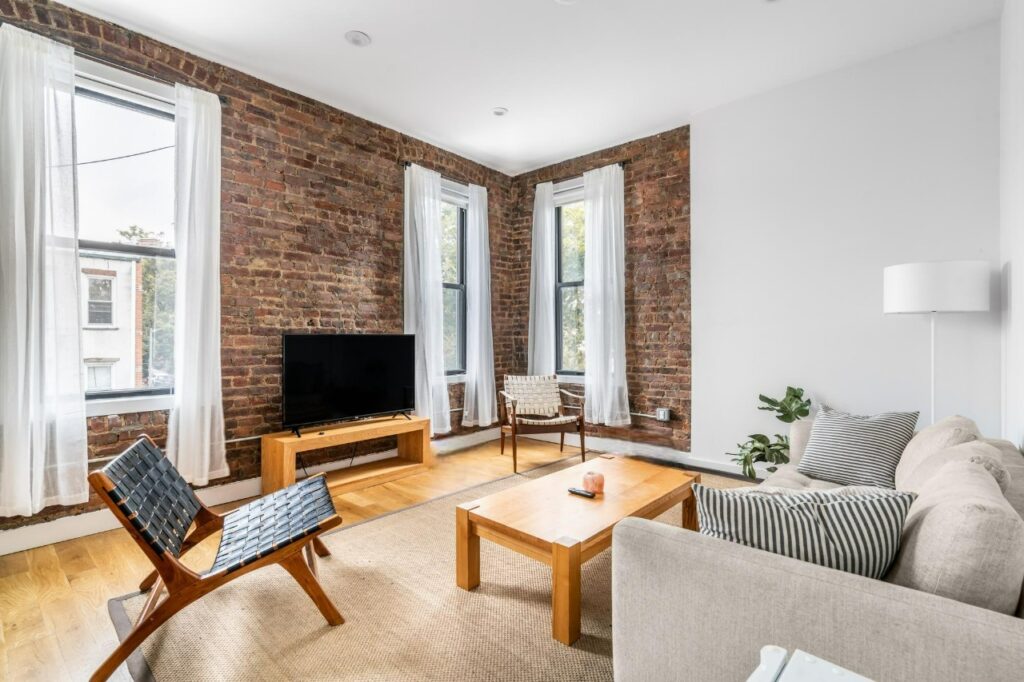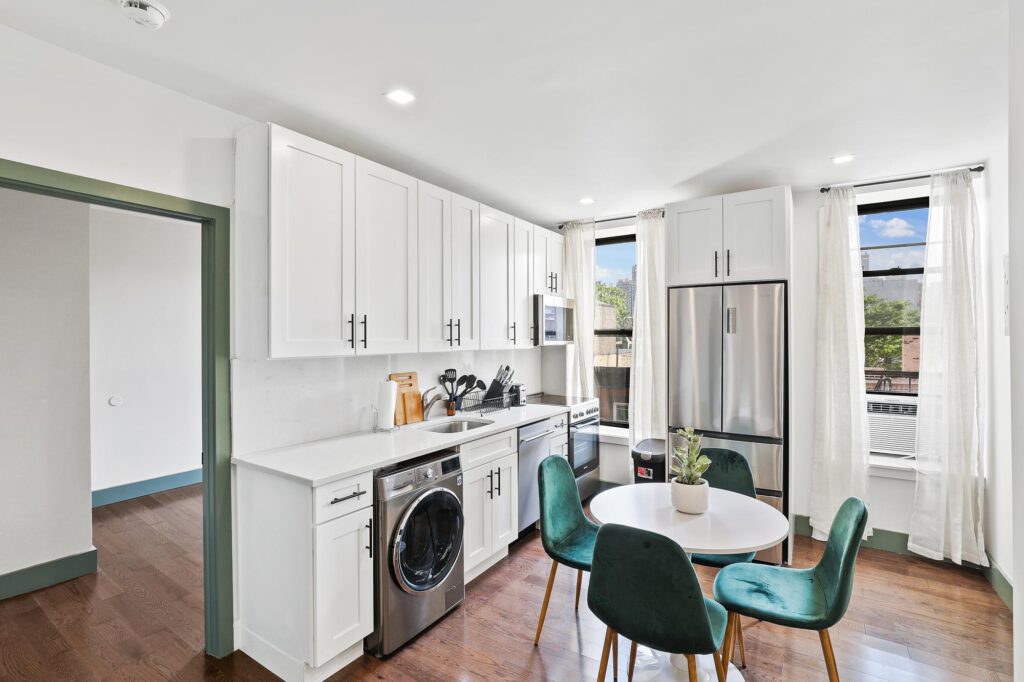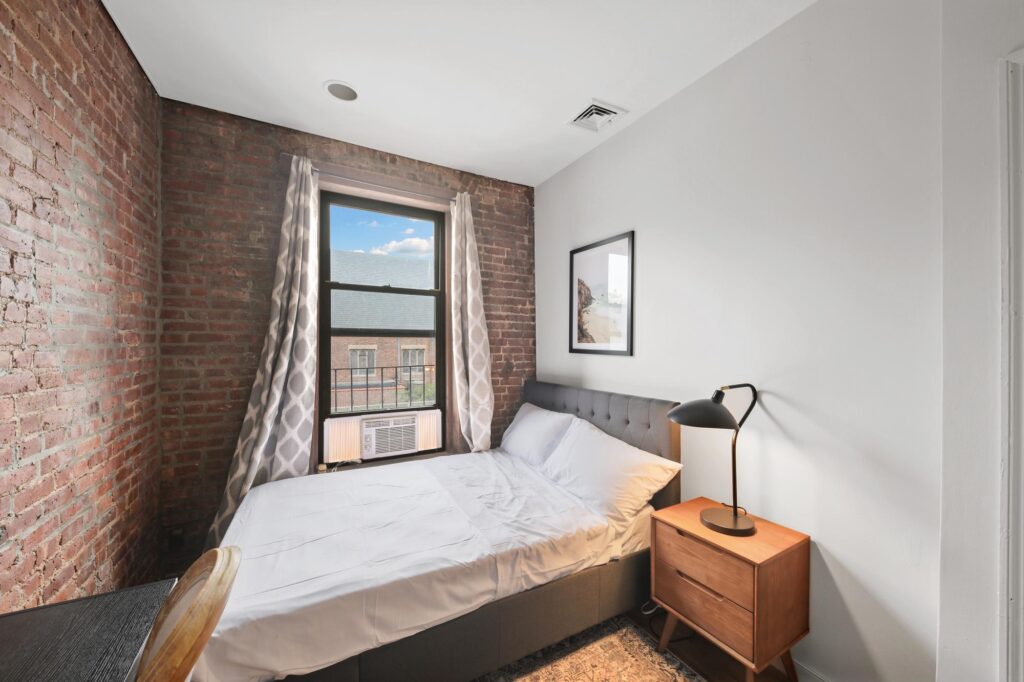Estimated reading time: 7 minutes

The rental market in New York City is highly competitive because of the low vacancy rates. As a result, rents are pretty steep, regardless of which of the great neighborhoods in New York City you choose.
Moreover, given the market conditions, even if you’ve been living in a rental for some time now, your landlord will likely want to increase the rent. In any case, you should always try to negotiate a better price. While this doesn’t always work, it usually does if you use the right strategies. Just take a look at these tips on how to negotiate rent on a New York City apartment.
Table of contents
- 1. To negotiate rent on a New York City apartment, you must know the market
- 2. Assess your finances
- 3. Inquire about the landlord’s legal limits
- 4. Inform the landlord that you have several options
- 5. Show your strengths
- 6. Offer something extra
- 7. Ask your landlord for something in return
- 8. Don’t fight with the landlord
- Move in or move out
- Conclusion
Enjoy a Hassle-Free, High End Rental Experience in NYC for Stays of 1 Month or Longer.





Fully-furnished New York rooms and apartments with flexible lease. Apply today and move in tomorrow.
1. To negotiate rent on a New York City apartment, you must know the market
You can’t begin a negotiation until you know the market. Even if you have a desired price in mind, it might not be realistic. Thus, you should start by doing a bit of market research to determine the average rent. Note that the prices differ depending on the neighborhood, the size of the apartment, and the amenities. You can even ask other tenants in the area about their rents.
All of this information will enable you to determine how much your current or desired rental is worth. If the price set by the landlord is too high, you can use the information collected to your advantage and negotiate a lower price.

2. Assess your finances
If you plan on moving into a new apartment in New York City, you should assess your finances first. Based on your financial situation and the average rent, you can determine how much you can afford to pay for an apartment. If your budget is tight, there’s no use trying to negotiate a lower price on a costly rental. To make things easier, you can use a rent affordability calculator.

3. Inquire about the landlord’s legal limits
If you want to negotiate rent on a New York City apartment, you must inquire about the landlord’s legal limits. More precisely, you must read carefully the final print of your leasehold agreement and identify the provisions regarding rent increase. If you disagree with the terms, renegotiate them before signing the lease. At the same time, you should read the local housing lawns to identify any legal limits on rent increases. This way, you’ll have the law on your side when you negotiate the rent.
4. Inform the landlord that you have several options
Whether you’re looking for a place to move into or want to renew your lease, you should inform the landlord that you’ve got other options. Otherwise, they won’t even consider lowering the price. You can apply this strategy even if you’ve already found the perfect apartment in one of New York City’s safest neighborhoods and aren’t interested in others. It’s just about having a bit of leverage when you negotiate.
5. Show your strengths
Landlords often encounter lots of issues with renters. They can damage their properties, fail to pay the rent on time, or cause trouble with the neighbors. Therefore, if they find quality tenants, they will be more inclined to negotiate a lower rent. Thus, you should show them your strengths. These could include a good track record for paying rent on time and taking good care of previous rentals.
6. Offer something extra
To negotiate rent on a New York City apartment, you should offer something extra to the landlord. For example, you could offer to take care of the repairs and maintenance work at your own cost. If you’re handy, you can do it yourself to save money. If you feel like you don’t have anything valuable to offer, you can ask the landlord if they need help. This will increase your chances of negotiating a lower rent.

7. Ask your landlord for something in return
If the landlord refuses to lower the rent, you should at least get something out of it. Thus, you should ask them for something in return. Carefully inspect the apartment and identify any minor or major issues. Take a look at your list and pick the problems that should be addressed more urgently. Tell your landlord you’ll accept the rent increase only if they address those issues in return. Don’t ask them to solve all the problems on the list because they’ll immediately reject your proposal. Focus only on one or two things.
8. Don’t fight with the landlord
Many people are under the false impression that you must be aggressive when you negotiate to get what you want. However, this isn’t the case, particularly when negotiating rent. If you apply this strategy, you’ll come off as rude, and the landlord won’t even consider your point of view. Instead, you should be polite and professionally argue your case for a lower rent. This will also help you develop a good relationship with the landlord long-term.
Move in or move out
If all goes well, you’ll negotiate a fair price that you can afford, and you’ll be able to move into your new apartment. However, you should also prepare for the worst-case scenario. For example, if you were negotiating the rent for the lease renewal and the landlord refused to make any concessions, you might have to move out.
But whether you’re moving in or out, finding moving help in the area is essential. For instance, if you’re moving to Chelsea, NYC, you should hire local movers to transport all your belongings. Just make sure you research moving companies early to find the best deal. Otherwise, last-minute moves can end up costing you a fortune.
Conclusion
New York City is a great place to live because it has much to offer. Nevertheless, it can be hard to find available rentals at affordable prices or avoid rent increases when renewing your lease. Thus, you should use these tips on how to negotiate rent on a New York City apartment.
